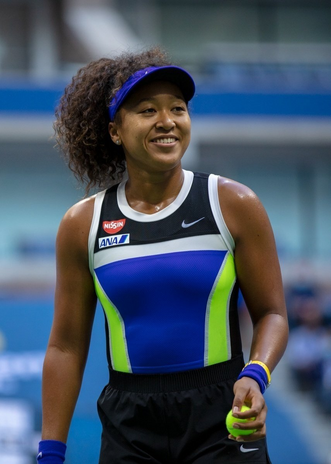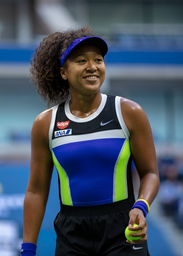During the U.S. Open this year, tennis player Naomi Osaka has worn seven masks, one for each round of the tournament, to honor seven victims of police brutality.
On her first day, she walked out with a mask with the name of Breonna Taylor, a Black woman who was fatally shot by police officers in her Louisville, Kentucky apartment. She shared in an interview at the first match that “it’s quite sad that seven masks are not enough for the amount of names.” While she could not fit more names, the ones she chose to wear included Elijah McClain, Ahmaud Arbery, Trayvon Martin, George Floyd, Philando Castile and Tamir Rice.
In an interview after her fifth match on Sept. 8, video messages from Sybrina Fulton, the mother of Trayvon Martin, and Marcus Arbery, the father of Ahmaud Arbery, were shown to Osaka, thanking her for representing their lost ones on her masks.
The tennis star’s response was just as touching, with Osaka adding, “…I feel like I’m a vessel at this point, in order to spread awareness.”While she did not burst into tears in front of reporters, she later wrote on Twitter, “I tried to hold it in on set but after watching these back I cried so much. The strength and the character both of these parents have is beyond me.”
This has not been the only time that Osaka has been vocal in her support for the Black Lives Matter movement. During the Western & Southern Open, she withdrew from the semifinals on August 26 to protest racial injustice after the shooting of Jacob Blake.
“Before I am an athlete, I am a Black woman. And as a Black woman I feel as though there are much more important matters at hand that need immediate attention, rather than watching me play tennis,” the now three-time Grand Slam winner wrote on Twitter.
The Western & Southern Open then decided to postpone the tournament until August 28, after which the 22-year-old tennis player agreed to continue into her semifinal match.
Earlier in the year, Osaka wrote an op-ed for Esquire where she asks herself the question, “If I couldn’t play tennis, what could I be doing to make a difference?”It is a question that carries a lot of weight for the athlete, as she explains that being “not racist” is not enough anymore, and it is going to take a collective effort for changes like the reallocation of police funds to be made.
After her third Grand Slam win, a reporter asked, “You had seven matches, sevens masks, seven names. What was the message you wanted to send?” All anyone would have to do to find the answer to that question is to look at the amount of support Osaka has received on social media, with even Michelle Obama posting on Twitter of how proud she is of the tennis superstar.
However, Osaka responded to the reporter by asking the perfect question, “Well what was the message that you got?” The message: she got all seven names visible to millions of people and started a conversation about racial injustice.



